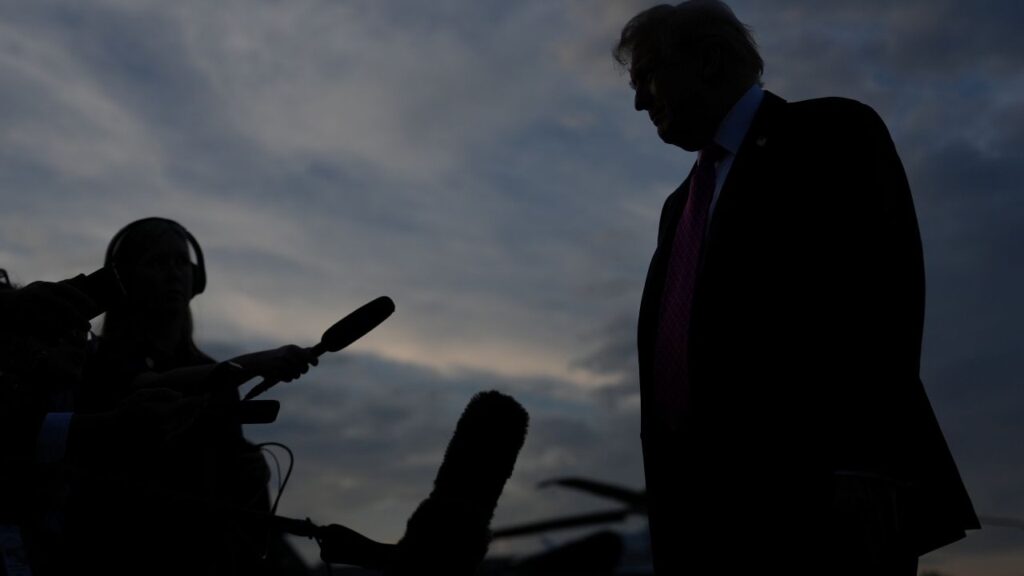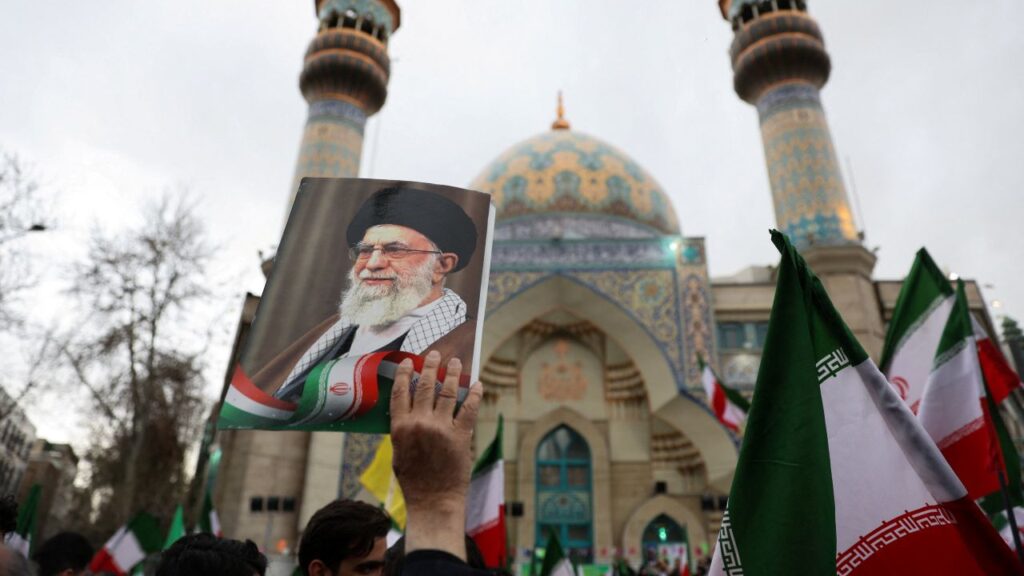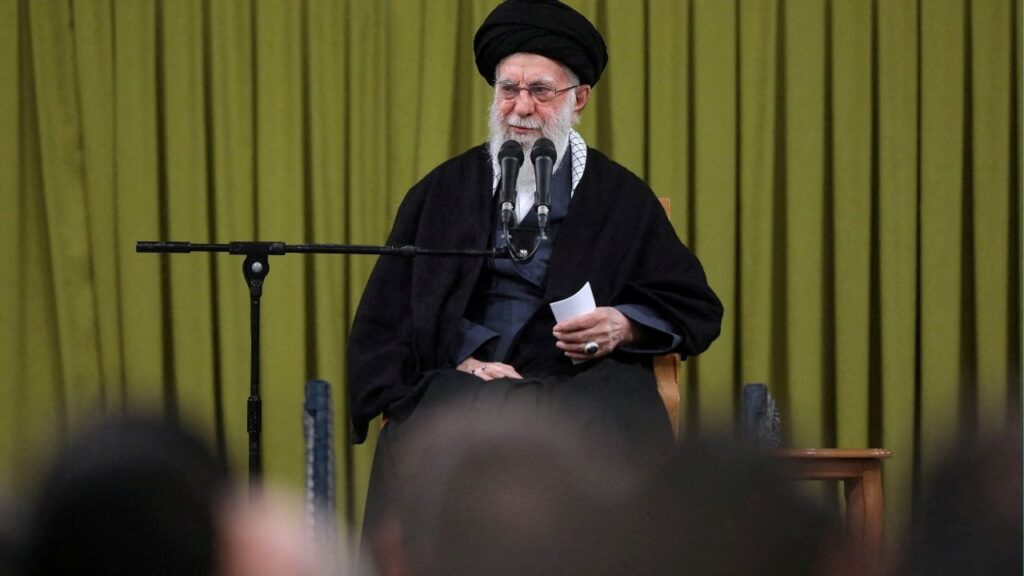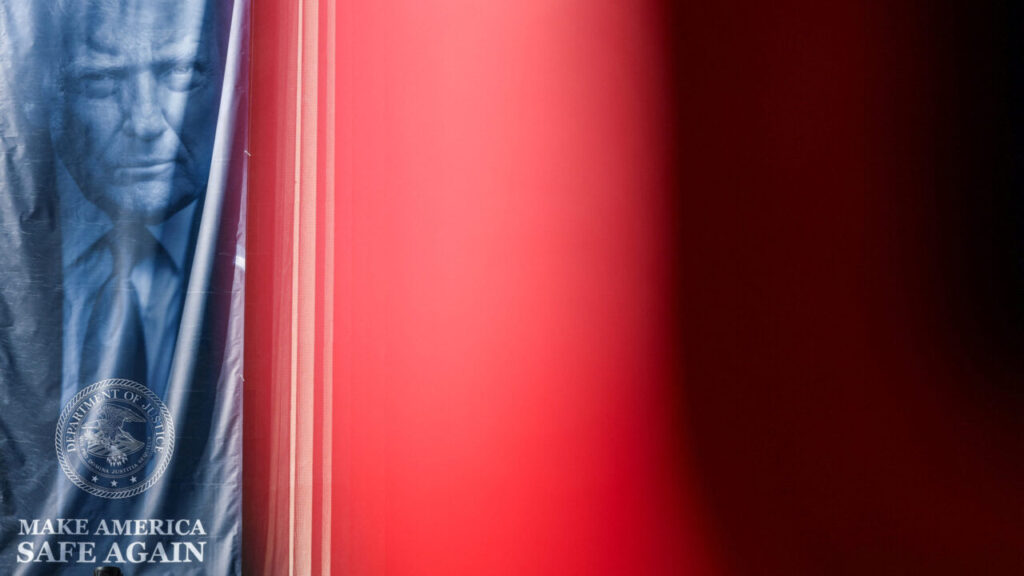Paula Kerger, the chief executive of PBS, at the station’s headquarters in Arlington, Va., May 12, 2025. Kerger has been promoting a campaign to save federal funding for public media. (Maansi Srivastava/The New York Times/File)

- PBS CEO Paula Kerger utilizes celebrities like Bill Nye, Kerry Washington and Reba McEntire in a bid to preserve federal funding.
- Congress is expected to vote on a proposal to defund PBS and NPR by the end of this week.
- The stakes are high, not just for PBS and NPR but also for local public TV and radio stations.
Share
|
Getting your Trinity Audio player ready...
|
When Americans took off the Fourth of July holiday to celebrate the country’s independence from the British, Paula Kerger, the CEO of PBS, was busy fighting her own political battle.
As a deadline was fast approaching for Congress to decide whether to strip more than $500 million a year from public media, Kerger was promoting a campaign to save that funding, featuring celebrities like Bill Nye, Kerry Washington and Reba McEntire.
“We were really taking advantage of this moment, when people were talking about our country, to be part of that dialogue because that is what PBS is,” Kerger said. “We are very much a part of the fabric of America.”
Congress Expected to Decide This Week
Congress is expected to vote on that proposal, known as a rescission request, by the end of the week. If approved, it would end federal support for the Corporation for Public Broadcasting, which distributes money to NPR, PBS and local stations. That deadline has led to a rush of last-minute appeals from dozens of public radio and TV executives across the country, from Washington, D.C., to Anchorage, Alaska.
“It’s really important,” said Ed Ulman, CEO of Alaska Public Media, the largest PBS and NPR organization in that state, where some organizations are in danger of shutting down if the vote passes. “Everybody is reaching out to their senators and ensuring that this issue is front of mind,” he added.
The stakes are high — not just for PBS and NPR, which get a small portion of their funding from federal grants, but for local stations, many of which need the money to pay for shows and news coverage about their communities.
Public broadcasters have been here before. Over the decades, Republican lawmakers have threatened to strip funding from NPR, PBS and local stations, objecting to a perceived liberal bias in news coverage or arguing that government should not indirectly finance media organizations. But the threat seems more likely now than ever: The House has already passed the measure, and President Donald Trump has threatened to withhold support from Republican lawmakers who don’t approve the cuts.
PBS and NPR have been working with station directors in states with Republican lawmakers to make their case directly to those representatives. Station directors are a powerful weapon in their arsenal: While NPR and PBS have been accused of liberal bias, local public executives often have relationships with their legislators and aren’t perceived as partisan.
Explaining NPR’s Local Impact
NPR has been helping local stations explain the impact of their local services to lawmakers, according to a spokesperson for the organization. It is part of an effort, she said, to demonstrate “the devastating impacts this rescission proposal would have on communities across the United States, and urge opposition to it.”
Station directors are showing up wherever they can to get some time with lawmakers — including at the farmers market. Ulman said he had spoken with Sen. Lisa Murkowski, R-Alaska, for about 20 minutes a few weeks ago at a pasta kiosk in Anchorage operated by one of her sons. Ulman said he had thanked Murkowski for her support of public media and answered questions about how money from the Corporation for Public Broadcasting was spent.
Other meetings are more formal. Julie Overgaard, the executive director for South Dakota Public Broadcasting, met with that state’s junior senator, Mike Rounds, at the state Capitol this spring. Overgaard said the meeting had gone well, and that Rounds had since indicated he was not in favor of the rescission package in its current form because of its outsize impact on rural and tribal stations.
With that in mind, Overgaard said, nothing is certain until the day of the vote.
“I have just tried to tell him repeatedly that if you want to deal with some of the issues you and others have raised around bias in programming, the rescission package is not the way to deal with that,” she said.
Ken Burns Joins Effort to Preserve PBS Funding

PBS and NPR are also tapping into their national network of donors to appeal directly to their lawmakers. Visitors to NPR’s website are greeted with a pop-up bearing a stark message: “Public media is facing its greatest threat in history.” It includes a link to Protect My Public Media, a site that provides information for listeners to call or email their senators. PBS has a similar call to action, affixing a bright red banner on its website with an all-caps plea for visitors to contact their representatives: “NOW IS A CRITICAL TIME TO ACT.”
Public broadcasters are also turning their most beloved avatars into spokespeople for the cause. Ken Burns, the filmmaker whose popular documentaries on American history often air on PBS stations, said in a recent interview on Joe Rogan’s popular podcast that PBS was the “Declaration of Independence applied to the communications world.” He echoed that sentiment in a recent interview on CBS News, calling efforts to defund public media “foolhardy” and “misguided.”
In the final days leading up to the expected votes, PBS will share testimonials from fans as part of its “Viewers Like Me” campaign, which it said had generated 5.1 million likes, comments and clicks since it started. And Kerger will make media appearances and answer questions from lawmakers in the days leading up to the decision.
“Even for those who we assume are not going to necessarily vote for us on this round for whatever reason, we still want to use the moment to do one last push,” she said.
This article originally appeared in The New York Times.
By Benjamin Mullin, Maansi Srivastava, and Tony Cenicola
c.2025 The New York Times Company
RELATED TOPICS:
Categories

Why Have You Started This War, Mr. President?



















